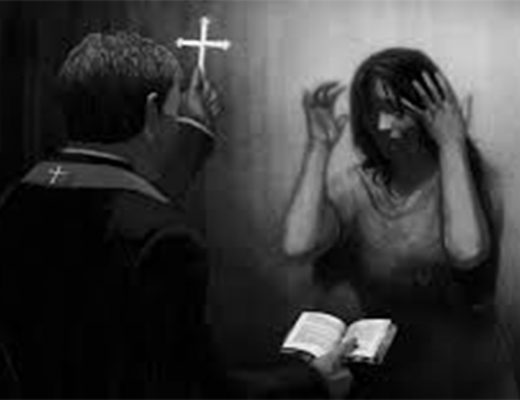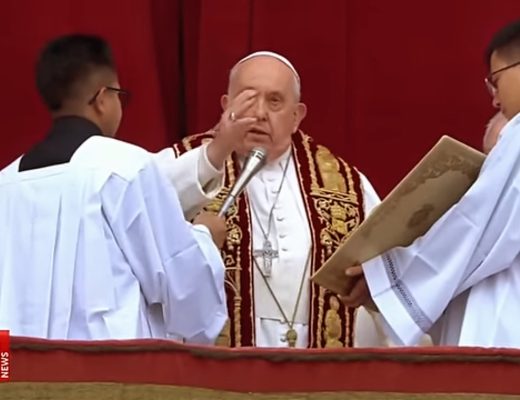It literally means “to the city (Rome) and to the world” and refers to the papal blessing that extends to the whole world on various occasions. The Supreme Pontiff usually gives this special blessing from the balcony of the central façade of St. Peter’s Basilica.
Usually this blessing is given on Easter Sunday and Christmas Day, although there are also other occasions on which the Pope grants exceptionally, such as a jubilee or the installation of a new pope.
The main feature of this blessing is that it offers forgiveness for sins that have already been forgiven before the confessional seat. Through the sacrament of confession, by which our sins are pardoned and the punishment due for these sins is given, this act brings us to a state of grace. But our wrong actions still require amendments and atonements, through the penance that is imposed in this holy sacrament, by good deeds, or purification in purgatory after death.
How does the Holy Catholic Church define this indulgence?
According to the Catechism of the Catholic Church, “An indulgence is obtained through the Church who, by virtue of the power of binding and loosing granted her by Christ Jesus, intervenes in favour of individual Christians and opens for them the treasury of the merits of Christ and the saints to obtain from the Father of mercies the remission of the temporal punishment due for their sins.” The Church does this not just to aid Christians, “but also to spur them to works of devotion, penance, and charity” (CCC 1478).
For the first time, the doctrine was declared infallible at the Council of Trent, held from 1545 to 1563.
In his apostolic constitution, Pope Paul VI also states: “Public indulgence is the remission before God of the temporal punishment for sins already forgiven, which the faithful Christian, duly prepared, receives under certain and specified conditions, through the action of the Church, as a servant of the work of redemption, in which distribute and applies through the treasury and the merits of Christ and the saints,” and thus we enter the kingdom of God. Since the indulgences completely overturns due punishment, for instance if the deceased does not fall into sin again, does not pass through purgatory but goes directly to heaven. (The Doctrine of the Indulgentiarum)
So, this indulgence forgives or erases this punishment, i.e. (what is required) to repair the damage we caused and the compensation that is still required as a result of this damage, and this allows us to enter directly into the heavenly kingdom without delay. At least our past sins and the due retribution for them are forgiven. How we live and persevere after, that’s all depends on each one of us and on the fidelity of our faith, provided that we do not fall into sin again.
To obtain this forgiveness, there are three conditions that must be met to be obtained and it is necessary to repent our past sins and have a sincere intention not to return to our shameful behaviour and actions…
And the Holy Catholic Church extended the deadline for performing this work from eight days to a period of twenty days in order to obtain this indulgence. You have twenty days from the day of Christmas and onward, if the time didn’t allow you to go to confession beforehand!
You must fulfil these three conditions:
-
Go to Confession before a priest (Before doing the following) :
-
Receive the Holy Eucharist during the Divine Liturgy.
-
Pray for the intentions of the holy pontiff (Our Father, Hail Mary, and Glory …
Urbi et Orbi is an effective blessing to anyone who receives it with faith and reverence, including those who watch it online or through the mass media such as television or radio.
All you have to do after you have fulfilled the necessary conditions is to accompany the Pope on the day of the occasion and ask our merciful Lord for these indulgences with all your heart
Formula of the Urbi et Orbi papal blessing
May the Holy Apostles Peter and Paul, in whose power and authority we trust, intercede for us before the Lord.
℟: Amen
Through the prayers and merits of Blessed Mary ever Virgin, Saint Michael the Archangel, Saint John the Baptist, the holy apostles Peter and Paul, and all the saints, may Almighty God have mercy on you and forgive all your sins, and may Jesus Christ bring you to everlasting life.
℟: Amen
May the almighty and merciful Lord grant you indulgence, absolution and the remission of all your sins, a season of true and fruitful penance, a well-disposed heart, amendment of life, the grace and comfort of the Holy Spirit and final perseverance in good works.
℟: Amen
And may the blessing of Almighty God, the Father, and the Son, and the Holy Spirit, come down on you and remain with you forever.
℟: Amen






1 Comment
Very good https://is.gd/tpjNyL